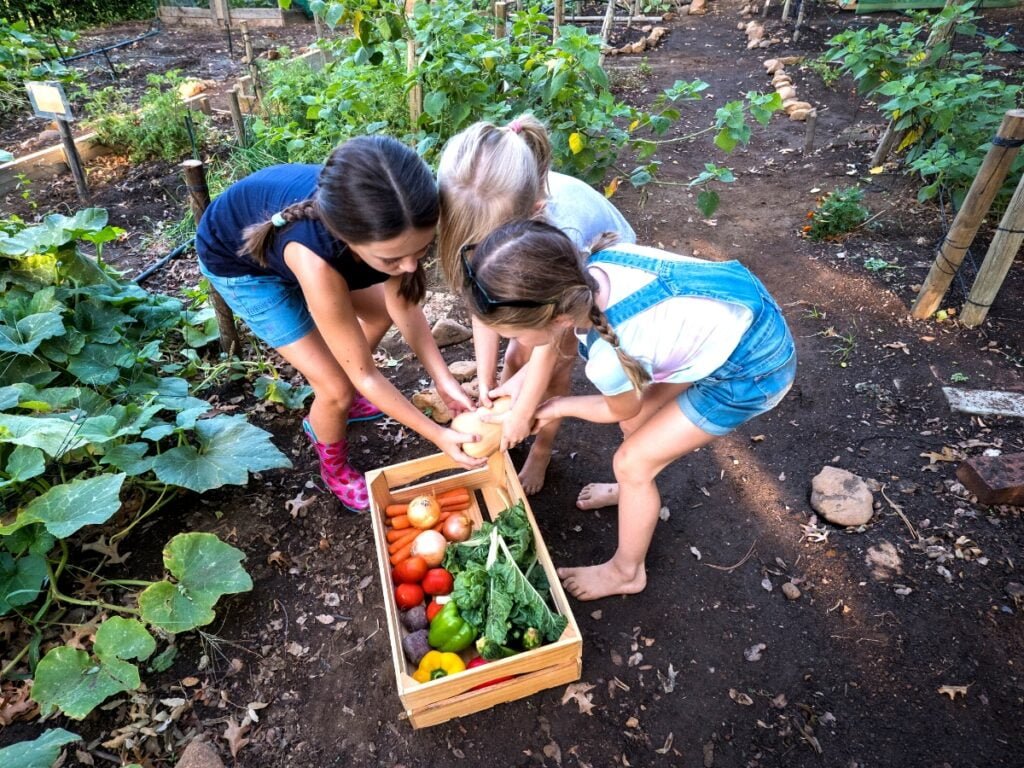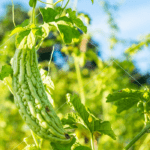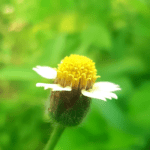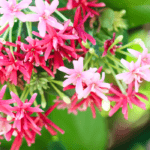Best Soil for your Plants ???
When it comes to gardening, one of the most critical factors that can determine the success of your plants is the soil in which they grow. The right soil provides the necessary nutrients, aeration, and moisture retention to support healthy and robust plant growth. However, with various soil types available, it can be overwhelming to choose the best one for your garden. In this comprehensive guide, we will explore different types of soil and their impact on plant growth, help you identify the best soil for specific plants to grow indoors or outdoors, and provide practical tips for creating the perfect soil mix. So, let’s dig into the world of soil and unlock the secrets to a thriving garden!
Types of Soil for Your Garden Best for Plant Growth
To begin our journey, we must first understand the various types of soil that exist. Soil is broadly classified into three primary types: clay soil, sandy soil, and loamy soil. Each type has its unique characteristics and advantages for plant growth.
Exploring the Different Types of Soil and Their Impact on Plant Growth
Choose the right soil for your plants – Indoor Plants / Garden Plants or Field Crops
- Clay Soil: Clay soil is known for its excellent water retention properties. It can hold water for extended periods, which can be beneficial in dry climates. However, the dense nature of clay soil can lead to poor aeration and drainage, potentially causing root rot in some plants. Mixing organic material or decomposable organic matter, such as compost, with clay soil can improve its overall structure and fertility.

- Sandy Soil: Sandy soil has large particles that allow water to pass through quickly, making it well-draining. While this can prevent waterlogged roots, it also means that sandy soil often lacks essential nutrients. Adding organic compost and mulching can enhance sandy soil’s fertility and help retain moisture.

- Loamy Soil: Often considered the gold standard for gardening, loamy soil strikes a perfect balance between clay and sandy soil. It offers excellent drainage, aeration, and nutrient retention, making it ideal for a wide range of indoor plants or field crops. Many gardeners consider loamy soil as the best soil for plant growth due to its versatility and ability to support healthy root development.

Best Soil for Growing Vegetables: A Guide to choose wisely
Growing your own vegetables is a rewarding experience that allows you to enjoy fresh, homegrown produce. To optimize the growth and yield of your vegetable garden, selecting the right potting soil is crucial.

Choosing the Ideal Potting Soil for Your Vegetable Garden to Maximize Growth and Yield
- Understanding Your Vegetable’s Needs: Different vegetables have varying soil requirements. For example, leafy greens like spinach and lettuce prefer soil with good moisture retention, while root vegetables like carrots and radishes thrive in well-draining soil. Tomatoes and peppers prefer loamy soil enriched with organic matter.
- Amending Soil for Specific Vegetables: If your existing garden soil does not match the requirements of your chosen vegetables, consider amending it with compost or potting mix to create a suitable growing environment.
- Crop Rotation: To maintain soil fertility and prevent nutrient depletion, practice crop rotation. Rotate your vegetable crops annually to avoid planting the same family of vegetables in the same spot each year.
- Raised Bed Gardening: Consider using raised beds, especially if your garden soil is not ideal for vegetable growth. Raised beds allow better control over the soil quality, drainage, and aeration.
Finding the Best Soil for Potted Plants
Container gardening offers flexibility and convenience, especially for urban gardeners with limited space. Selecting the right potting mix is vital to ensure the health and vitality of your potted plants.

The Key Factors to Consider When Selecting Potting Soil Mix for Potted Plants
- Drainage: Adequate drainage is crucial for potted plants to prevent waterlogged roots. Choose a potting mix that allows excess water to escape easily. The best soil for potted plants is the one which has the most efficient drainage management system.
- Nutrient Content: Look for a potting mix that contains essential nutrients to support plant growth. Organic potting mixes often provide a balanced nutrient profile.
- Aeration: Good aeration is essential for healthy root development. Potting mixes with ingredients like perlite or vermiculite offer improved aeration.
- pH Level: Check the pH level of the potting mix to ensure it aligns with the needs of your specific plants. Most plants thrive in a slightly acidic to neutral pH range.
Compost: The Gold Standard of Organic Soil Enrichment
Compost is often referred to as “black gold” in gardening circles, and for good reason. It is a natural, organic fertilizer that improves soil fertility and structure.

Harnessing the Power of Compost to Improve Soil Fertility, Increase Organic Matter and Plant Health
- Compost Basics: Compost is the result of decomposed organic matter, such as kitchen scraps, yard waste, and leaves. It is rich in nutrients and beneficial microorganisms.
- Benefits of Compost: Adding compost to your garden soil enriches it with essential nutrients, improves water retention, and enhances soil aeration. It also promotes the growth of beneficial soil microorganisms.
- Composting at Home: You can easily create compost at home using a compost bin or pile. Add a mix of green (nitrogen-rich) and brown (carbon-rich) materials, keep it moist, and turn it regularly for faster decomposition.
- Applying Compost: When using compost in your garden, mix it into the soil before planting or as a top dressing around existing plants. Compost tea, a liquid solution made from steeping compost, can also be used as a foliar spray to provide nutrients directly to plant leaves.
Understanding Garden Soil: Unraveling the Secrets of Healthy Plant Growth
Garden soil plays a pivotal role in the overall health and productivity of your plants. Understanding its composition and properties is essential for successful gardening.
A Detailed Examination of the Role of Garden Soil in Nurturing Lush Plant Life
- Soil Structure: Soil is composed of mineral particles, organic matter, water, and air. The arrangement of these components determines the soil’s structure and affects its ability to support plant growth.
- Soil pH: The pH level of soil is a measure of its acidity or alkalinity. Most plants prefer a slightly acidic to neutral pH range for optimal nutrient uptake.
- Soil Nutrients: Essential nutrients for plants include nitrogen, phosphorus, potassium, and several micronutrients. Proper soil fertility relies on a balanced supply of these nutrients.
- Soil Organisms: Soil is teeming with life, including beneficial bacteria, fungi, earthworms, and other microorganisms. These organisms play crucial roles in nutrient cycling and soil health.
The Complete Guide to Potting Mix: Creating the Perfect Blend for Your Plants
When it comes to container gardening, selecting the right potting mix is paramount. A well-chosen potting mix provides the necessary nutrients, aeration, and drainage for healthy plant growth.
Crafting an Optimal Potting Mix for Different Types of Plants and Containers
- Key Ingredients: A high-quality potting mix typically consists of peat moss, perlite, vermiculite, and organic matter. Peat moss retains moisture, while perlite and vermiculite improve aeration.
- Tailoring for Specific Plants: Different types of plants have varying soil requirements. For example, cacti and succulents prefer a well-draining mix, while tropical plants thrive in a mix that retains moisture.
- Container Size: The size of the container also influences the potting mix composition. Larger containers hold moisture for a longer time, so they may require a mix with better drainage.
- Repotting: As plants grow, they outgrow their containers, depleting the nutrients in the potting mix. Repotting your plants into fresh mix every 1-2 years ensures they have access to the nutrients they need.
Organic Soil: The Natural Path to Sustainable Gardening Success
Organic gardening is gaining popularity as gardeners prioritize environmentally friendly practices. Organic soil is a cornerstone of sustainable gardening.
Embracing Organic Soil Practices for Eco-Friendly and Nutrient-Rich Gardens
- Avoiding Synthetic Chemicals: Organic soil eschews the use of synthetic fertilizers and pesticides, relying instead on natural alternatives. This protects beneficial soil organisms and prevents chemical buildup.
- Compost and Manure: Compost and well-aged manure are the foundation of organic soil enrichment. They add nutrients, improve soil structure, and promote beneficial microbial activity.
- Cover Crops: Planting cover crops, like clover or legumes, during fallow periods can enhance soil fertility and prevent soil erosion.
- Mulching: Organic mulches, such as straw or wood chips, conserve soil moisture, suppress weeds, and add organic matter as they decompose.
Soil for Your Plants: Decoding the Secrets to Thriving Plant Growth
The quality of soil directly impacts your plants’ health, vigor, and overall performance. Understanding how soil influences plant growth is key to successful gardening.
How the Right Soil Impacts Your Plants’ Health, Vigor, and Overall Performance
- Nutrient Uptake: Plants absorb essential nutrients through their roots. A well-balanced soil with adequate nutrients ensures plants receive what they need for healthy growth.
- Water Retention and Drainage: Soil that can retain moisture without becoming waterlogged provides plants with a consistent water supply while preventing root rot.
- Root Development: Soil structure and aeration directly influence root development. Healthy roots support robust plant growth and help plants withstand stress.
- Disease Resistance: Healthy soil fosters strong, resilient plants that are better equipped to resist pests and diseases.
Home Garden Soil 101: A Comprehensive Overview for Gardening Enthusiasts
Whether you’re a seasoned gardener or a beginner, understanding the basics of home garden soil is essential for nurturing your plants effectively.
Everything You Need to Know About Preparing and Maintaining Soil in Your Home Garden
Understanding the vital aspects of preparing and maintaining the soil becomes the key to a successful horticultural journey. Preparing the soil with care and precision, enriching it with essential nutrients to the soil, and selecting the right soil type are paramount in nurturing a garden that flourishes with life and beauty.
Each garden boasts a unique story, and the journey begins with identifying the characteristics of different soil types available. The soil you choose sets the stage for your plants’ well-being, and finding the best soil for plant growth is akin to uncovering nature’s secret recipe for a thriving garden. From sandy to loamy, each soil type offers distinct advantages and challenges. Organic matter to the soil becomes the heart of fertility, providing the nourishment your plant needs to flourish in their verdant abode.
As we explore the world of soil, we shall unveil the secrets of a well-balanced soil structure and how to augment it with the perfect blend of potting soil that contains the essence of growth. Join us in this botanical odyssey as we unlock the mysteries of home garden soil, empowering you with the knowledge to create a sanctuary of greenery that thrives and delights in every season. So, let us sow the seeds of wisdom and embark on this soil-prepared adventure together!
- Soil Testing: Conduct a soil test to assess its pH and nutrient levels. This helps identify any deficiencies and guides you in amending the soil accordingly.
- Amending Garden Soil: If your soil test reveals imbalances or deficiencies, use organic amendments like compost, bone meal, or fish emulsion to improve soil fertility.
- Mulching Benefits: Mulching your garden beds conserves soil moisture, suppresses weeds, and adds organic matter as it breaks down.
- Aeration and Tilling: Proper aeration and occasional tilling help maintain soil structure and prevent compaction.
Preparing the best soil for plant growth
“The quest to find the best soil for plant growth is an essential journey in gardening”
Each soil type offers unique advantages, and understanding the needs of your plants and your specific gardening conditions is key to making the right choice. Whether you are growing vegetables in raised beds, nurturing potted plants in containers, or creating a lush garden in your backyard, the proper soil selection and enrichment will undoubtedly pave the way for a flourishing and thriving garden.
Remember, gardening is a journey of learning and discovery. Continuously educate yourself about the specific needs of your plants and implement sustainable practices to maintain healthy soil and vibrant plant life. By harnessing the power of the soil beneath your feet, you can create a green haven that blooms with life and beauty, making your garden the envy of all who see it.
So, dear gardening enthusiasts, let us embark on this soil-centric adventure and unlock the secrets to successful plant growth. Together, we will nurture our gardens with love, dedication, and knowledge, reaping the rewards of a bountiful harvest and a flourishing ecosystem right in our own backyard. Happy gardening!
The Definitive Guide to Soil for Growing: From Seedlings to Harvest
The journey of successful plant growth begins with selecting the right soil for seedlings and nurturing them until harvest.
A Step-by-Step Journey Through the Process of Soil Selection for Successful Plant Growth
- Starting with Healthy Seedlings: Choose a high-quality seed starting mix or use a homemade blend to provide a sterile and nutrient-rich environment for young seedlings.
- Transplanting Seedlings: As seedlings grow and develop their first true leaves, carefully transplant them into containers or garden beds with the appropriate soil mix.
- Supporting Growth through the Seasons: Continuously monitor and adjust soil conditions as plants mature. Water, nutrients, and soil structure play a critical role in the development of healthy plants.
- Harvest and Beyond: As harvest time approaches, ensure the soil remains well-nourished to support the final stages of plant development and yield a fruitful harvest.
About our Web Store www.shehrikisaan.com
For a wide selection of fertilizers and soil amendments suitable for all these plants, we invite you to explore our esteemed webstore at www.shehrikisaan.com. Our webstore offers a comprehensive range of products designed to enhance the growth and vitality of your plants.
Whether you’re seeking specialized fertilizers, organic amendments, or premium-quality soil enhancers, our webstore is your one-stop destination. With our commitment to providing garden enthusiasts with top-notch products, you can trust us to cater to your gardening needs effectively. Visit www.shehrikisaan.com today and unlock the secret to flourishing plants.
Discover our Social Media Presence and web store. Choose your favourite platforms:
🌐 Google Business Link: https://goo.gl/maps/wgs6yU8mArXRfHdi9
🎥 YouTube: https://www.youtube.com/@shehrikisaan
💼 LinkedIn: https://www.linkedin.com/company/shehrikisaan/
📌 Pinterest: https://in.pinterest.com/ShehriKisaan/
📘 Facebook: https://www.facebook.com/ShehriKisaan/
📷 Instagram: https://www.instagram.com/shehrikisaan_gn/
🐦 Twitter: https://twitter.com/Shehri_Kisaan
🛒 Product Web Store: www.shehrikisaan.com
📚 Check out our other articles, education materials, blogs, and write-ups too: www.shehrikisaan.in







